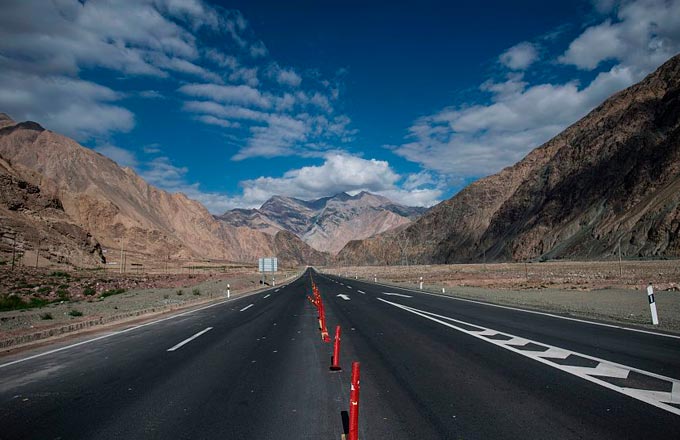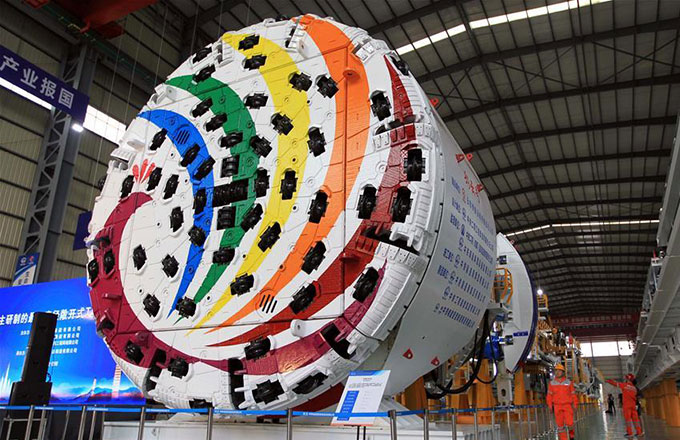New rules fit with Xi's ecology push
Provinces trying to build ecological ?civilization envisioned by president
For village official Zhou Shuangzheng, failing to keep the rivers clean in his community in Zhejiang province means he will be held accountable under a new regulation issued by the province's legislature last week.
Zhou, secretary of the Party branch of the village of Zhoucun in Yongkang, is one of the province's about 60,000 "river chiefs" responsible for protecting the 40,000 rivers and lakes in Zhejiang. On Friday, the Zhejiang People's Congress re?viewed and passed the regulation on river chiefs.
It is the country's first such provincial regulation since the Communist Party of China Central Committee issued a guideline on river chiefs in December. Under the plan, local government officers will be named river chiefs and will be responsible for dealing with water pollution.
President Xi Jinping has attached great importance to environmental protection and ecological civilization as the country seeks to better balance economic growth and green development.
During his latest domestic inspection tour to Shanxi province in June, Xi called on the whole nation to plant trees to improve the ecology.
"If everyone plants several trees, and every year witnesses plantings in several places, then after a number of years, the homeland will have more green, with more beautiful hills and improved people's livelihoods," Xi said.
In March, Xi, together with other senior leaders, joined members of the public, including primary school students, to plant trees in an eastern suburb of Beijing ahead of Qingming Festival, or Tomb Sweeping Day, on April 4.
"We expect blue sky, white clouds, clean water and fresh air, which are all related to ecological construction. The people should live in green shade, and this is the goal of our efforts," he told the students.
During a study session in May attended by members of the Political Bureau of the CPC Central Committee, Xi listed six key tasks, including speeding up the transformation of growth models and intensifying antipollution measures to push for green development and green lifestyles.
The country, he said, should protect the environment "like one protects his eyes" and treat the environment "like one treats his life".
China should reject the development model that damages and even destroys the environment and reject practices that boost short-term economic growth at the cost of the environment, he said.
"Clear waters and lush mountains are as valuable as gold and silver," Xi said while inspecting Zhejiang's Anji county in 2005, when he was the province's Party chief.
Green development is among the country's five development concepts put forward by the CPC Central Committee in October 2015, together with four other concepts — innovation, coordination, opening-up and sharing.
Ecological civilization was listed along with economic, political, cultural and social progress as one of the five goals in the country's overall development plan at the 18th National Congress of the CPC in late 2012.
The key tenets of ecological civilization include the need to respect, protect and adapt to nature; a commitment to resource conservation; environmental restoration and protection; recycling; low-carbon use; and sustainable development.
China will actively develop clean energy and improve energy efficiency to push green development and lifestyles, Xi said in a congratulatory letter to the Eighth Clean Energy Ministerial and the Second Mission Innovation Ministerial on June 7.
Clean energy development is crucial to the improvement of energy structure, energy security and the promotion of ecological civilization, Xi said in the letter.
China has focused on its ecological civilization drive over the past five years, both institutionally and practically.
Last year, the Central Leading Group for Deepening Overall Reform, headed by Xi, passed about 20 reforms to advance ecological progress.
The country has pledged to cut its carbon emissions per unit of GDP by 60 to 65 percent from 2005 levels by 2030 and raise the share of non-fossil energy use in total consumption to about 20 percent.
More than 10 provinces have zones under the protection of the ecological red line. Sichuan and Guizhou provinces marked 40 percent and 32 percent, respectively, of their land areas as protected by the red line.
Meanwhile, routine central and local environmental inspection campaigns have urged authorities and businesses not to lose momentum in pollution control.
anbaijie@chinadaily.com.cn
- California institute brings expressive arts therapy to Guangzhou
- China to build world's longest coast road, report says
- Controversial gene-editing technology study retracted from top journal
- Hunan firm, Russian supermarket sign $1m trade deal
- First high-speed train starts service in Inner Mongolia



























